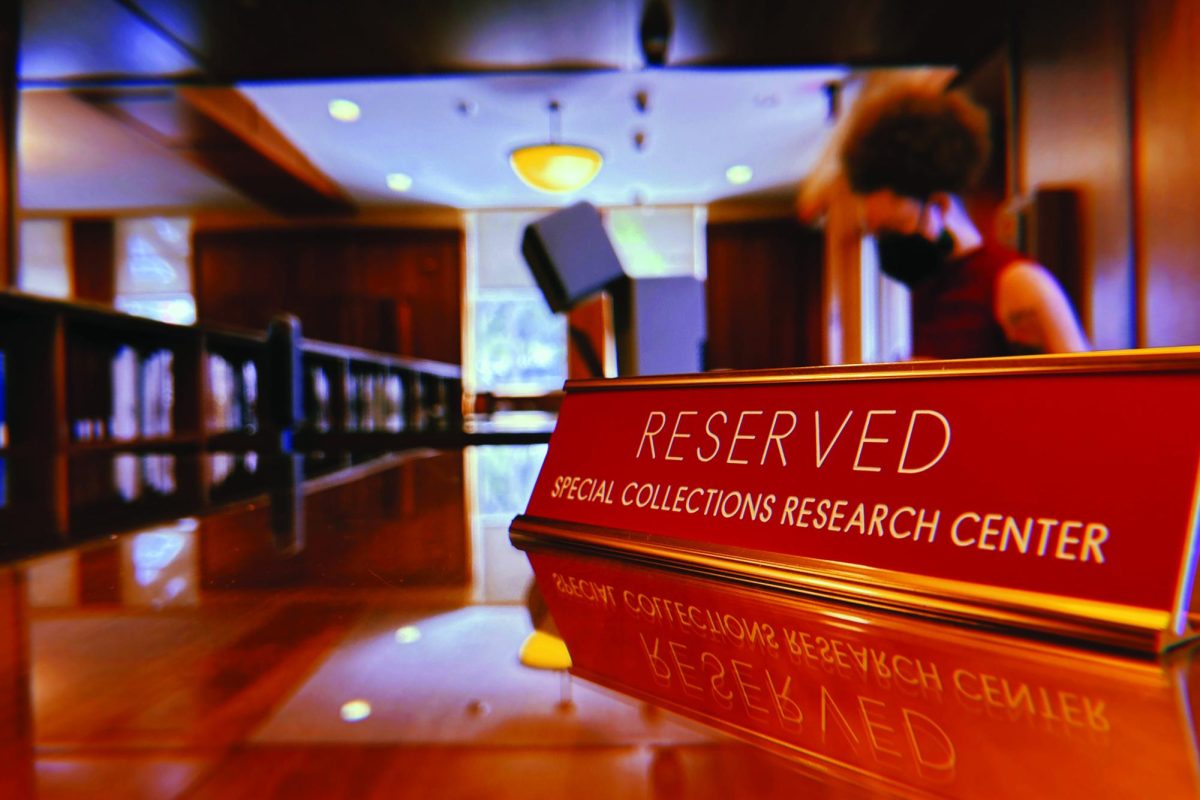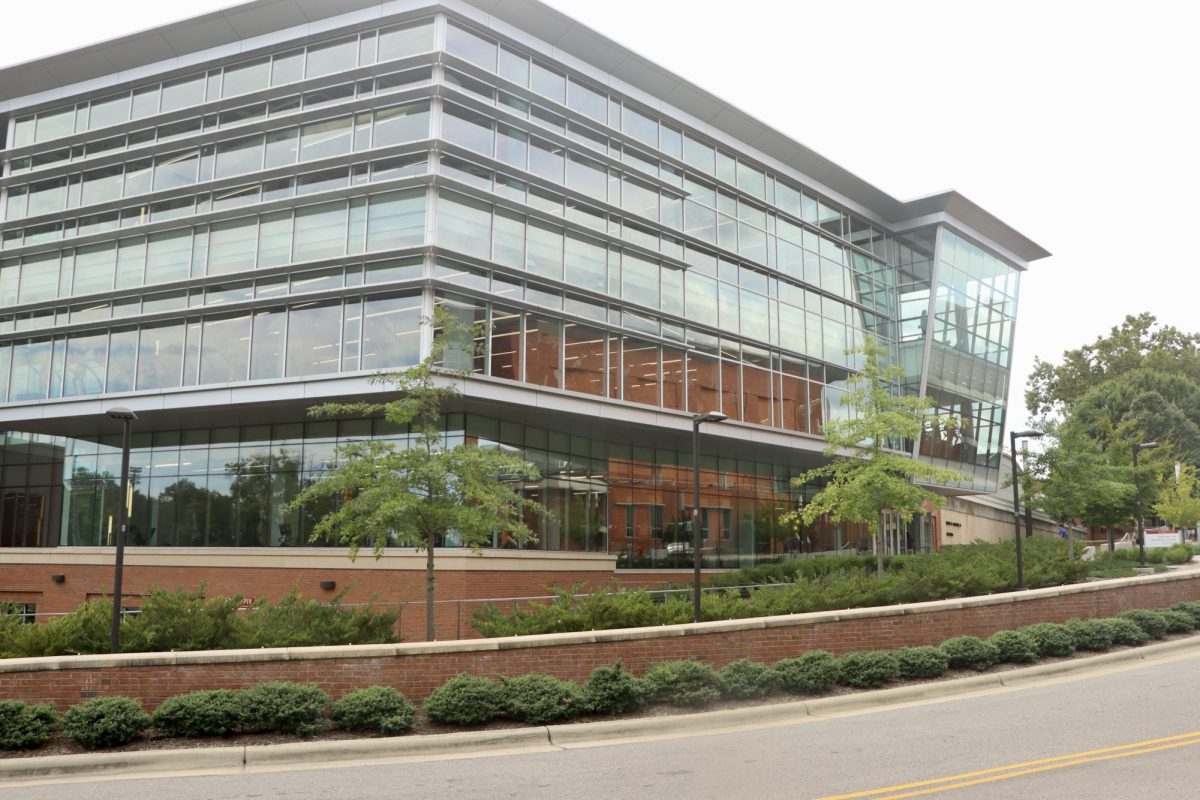Will Hooker and his family grow 25 percent of the food they eat, and they do it on a 1/5 acre residential plot within walking distance of campus.
This fruitful back yard isn’t just a gardening project, it’s a model of the lifestyle, knowledge and ideals that Hooker, a professor of horticultural science, wants to transmit to students and the campus through landscape design classes and sustainability initiatives.
“Right now, we’re leading our lives in a way that will make the earth uninhabitable,” Hooker said. “We’re facing environmental crises like global warming and polluted waters. There’s stuff going on that’s downright dangerous.”
But Hooker is not prophesying doomsday or a return to the Stone Age.
Instead, he teaches an alternative, sustainable lifestyle based on landscapes designed for high-productivity and efficient use of land, water and energy — often at the scale of the single-family home.
These principles are embodied in the methodology of permaculture, a term coined by Australian landscape architect Bill Mollison in 1978. The word is a contraction of “permanent culture” or “permanent agriculture,” and defined by its creator as “the conscious design and maintenance of cultivated ecosystems that have the diversity, stability and resilience of a natural ecosystem.”
Hooker immersed himself in the world of permaculture in the late 1980’s, after bicycling across the United States.
“I noticed that there weren’t any people out in the landscape,” Hooker said. “In fact, we spend 87 percent of our time indoors, and 6 percent of our time in transit. If there’s no one outside, who’s paying attention to what goes on in the natural environment?”
Alarmed by the dissociation of people from the environment that sustains them, Hooker went in search of a stronger message to transmit to his students; a real sustainable alternative that puts humans in thoughtful contact with natural cycles, even in an urban environment.
He found permaculture, took a certification course and began to incorporate elements of permaculture into his landscape design classes.
“Permaculture attempts to put together flexible, self-reliant ecosystems that provide some portion of our needs, and where the byproducts of one part of the system become the resource base for the next system,” Hooker said. “The natural ecosystem is an impeccable teacher.”
For example, in his own back yard, his chickens eat the green waste from his garden, producing a rich manure that goes right back into fertilizing food plants — just one example of a complete ecological cycle localized at one residence.
“But permaculture isn’t only about food,” Hooker adds. “It’s about using resources in a very precious and thoughtful way.”
Thus, the use of renewable energy sources for electricity and the thrifty use of rainwater also have a place in a permaculture landscape.
Nick Serrano, a senior in horticultural science who plans to pursue a graduate degree in landscape architecture, has taken Hooker’s landscape design class. While he says Hooker is an idealist, he thinks principles of sustainability will play an increasing role in society.
“Will is 20 years ahead of his time,” Serrano said. “But no matter what I go into, it will be sustainability-oriented. If humans keep going and consuming, we’re going to have to change. It’s just a matter of time.”
Joseph Young, also a senior in horticultural science, sees these changes happening already, even in his summer job for the Raleigh Parks and Recreation Department.
“The city is making leaps and bounds forward,” Young said. “They’re planting perennials and hardier plants — plants that take less energy to maintain — and collecting rainwater to irrigate them.”
Hooker is also trying to get the University into the movement. In 2002, he helped establish the N.C. State Sustainability Coalition, a group of faculty, staff and students focused on efficient energy use, waste management and other environmental initiatives on campus.
One of the group’s early goals — to conduct a campus-wide sustainability assessment — was recently realized under the direction of Jack Colby, assistant vice chancellor for facilities operations and the University sustainability officer.
“The assessment provides a baseline for implementing sustainability concepts,” Colby said. “Now we’re developing strategies for improving green buildings and energy and water use.”
But, the bottom line, says Hooker, is individual determination. “There’s a saying, if you want to change the world, start at your doorstep,” he said. “So, literally, start at your doorstep. If it’s in the sun, put a tomato there. And then a basil plant, and you’ve started to take responsibility for your needs.”



